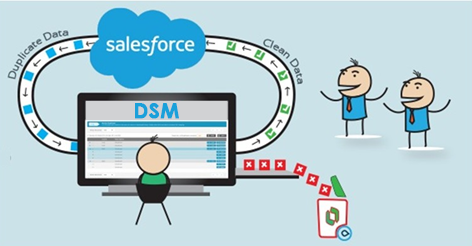We are working in a data-driven world and are required to make data-driven decisions. Now-a- days managers are regularly bombarded with loads of data via dashboards and reports. As business tycoon, Mr. Mukesh Ambani says, ‘Data is the new oil’ and as with oil, data also must be transformed to be of real value to the organization and in larger terms to the society.
The role of data scientist is in hot demand and they are constantly trying to make sense of data by building data models that can provide crucial insights necessary for organizations to grow and generate more value. However, the data professionals face many challenges that prevent them from building powerful models. According to a study conducted by Kaggle titled the “State of Data Science and Machine Learning”. One of the questions asked in the survey was, “At work which barriers or challenges have you faced this past year?” Following are the top results:

Now let’s look at how often have they encountered these problems:

Therefore, we can clearly inference that data cleanliness or data scrubbing is clearly a big issue and data scientists spend 80% of their time cleaning data. But first, let us understand what is dirty data.
According to TechTarget, a database that contains errors, whether via dirty data, dirty data sets, duplicate information, incomplete or outdated materials, or troublesome transferals from other systems are considered dirty. Dirty Data sets, Duplicate information or incomplete records fall under the umbrella of dirty data. Therefore, information that cannot be used can cause an issue for organizations.
Now let’s look at negative situations that businesses face when dealing with dirty data, dirty data problems, or dirty data sets.
1. Revenue Loss
Almost all organizations depend on their consumer base to purchase their goods and services to keep their revenue moving. And when the data the organizations use to get in touch with their prospective customer base is dirty, the bottom line can take a serious hit. So, failing to get in touch with the right customer at the right time results in revenue loss. And this loss mounts up depending upon how long it takes organizations to clean up and manage their database. According to Experian Quality Data, the average company wastes 12% of their revenue due to inaccurate information in their records and despite increased knowledge about this problem, the figure has not changed since a long time.
2. Bad Customer Experience
When customers are interested in purchasing a product or a service from an organization, they want their experience to hassle-free. You expect organizations to handle critical client account information diligently. Customers tend to lose patience very quickly when the organization is not able to pull up the correct and latest information history of the respective customer. A diminished client experience can be very detrimental to organizations, affecting relationships negatively over time, according to IT Business Edge.
3) Under-Informed Business Decisions
As dirty data is readily available these days, company management has heavily relied upon a lot of data points to make crucial business decisions rather than totally depending upon their intuition. This has in a way lead to a lot of dependency on data, but it’s impossible to conclude on an informed decision if the data is all over the place. Smart and data-driven decisions are impossible when company records or data are incorrect or out of date. As per business 2 Community misinformed or under-informed decisions can be dangerous and leave businesses scrambling to compete within their industry.
4) Wasted Marketing Efforts
Marketers rely a lot on data without duplication to constantly think about new ways of engaging with their audiences. They use various forms of outreach like Targeted Promotions, email campaigns, Social media campaigning. When vital customer information is wrong, the time, money, and dedication that is put to strategize campaigns and attract customers is wasted. All parties are negatively affected if the organizations continue to their hard-earned resources using inaccurate information.
Dirty data or Dirty Data sets is problematic for companies of all sizes and industries. Therefore, it is imperative for businesses to be cognizant of the steps they have in place to maintain organizational and customer data. As the data volume is growing rapidly through data collection at various points, the quality is somewhat compromised, posing serious questions on the sanctity of databases. Though, it may seem a trivial issue, it has a huge and lasting impact on the businesses.
Quality data or Data cleansing (data cleansing is the same process as data scrubbing) acts as a driver of high productivity and good decision making, therefore Mirketa offers DSM a leading product on Salesforce to get rid of duplicate data, dirty data, and incomplete records. It makes managing duplicate data easy in Salesforce. It is a deduplication application that cleanses the duplicate records in a simple yet powerful 5 steps wizard-based approach.
DSM runs natively on Salesforce, so data does not leave Salesforce org. As there is no data transfer at any point, data remains safe and intact. You can create custom queries to search for duplicate data in your org, select a master record, and merge duplicates.

Check out ‘Duplicate Search and Merge – Your Personal Data Doctor’ and clean your database in an easy step by step manner.
Thanks so much for the post.Much thanks again. Really Cool.